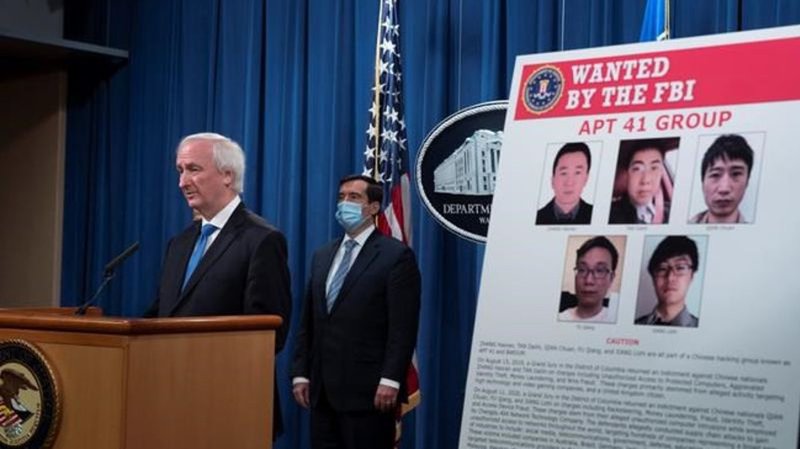
US charges 5 Chinese citizens in global hacking campaign
WASHINGTON — The Justice Department has charged five Chinese citizens with hacks targeting more than 100 companies and institutions in the United States and elsewhere, including social media and video game companies as well as universities and telecommunications providers, officials said Wednesday.
The five defendants remain fugitives, but prosecutors say two Malaysian businessmen accused of conspiring with the alleged hackers to profit off the attacks on the billion-dollar video game industry were arrested in Malaysia this week and face extradition proceedings.
The indictments are part of a broader effort by the Trump administration to call out cybercrimes by China. In July, prosecutors accused hackers of working with the Chinese government to target companies developing vaccines for the coronavirus and of stealing hundreds of millions of dollars worth of intellectual property and trade secrets from companies across the world.
The allegations, and range of victims, in Wednesday’s announcement were significantly broader. Officials say the yearslong hacking scheme was wide-ranging, was aimed at various business sectors and academia and was carried out by a China-based group known as APT41. It was accused in a report last year by the FireEye cybersecurity firm of carrying out state-sponsored and financially motivated operations.


